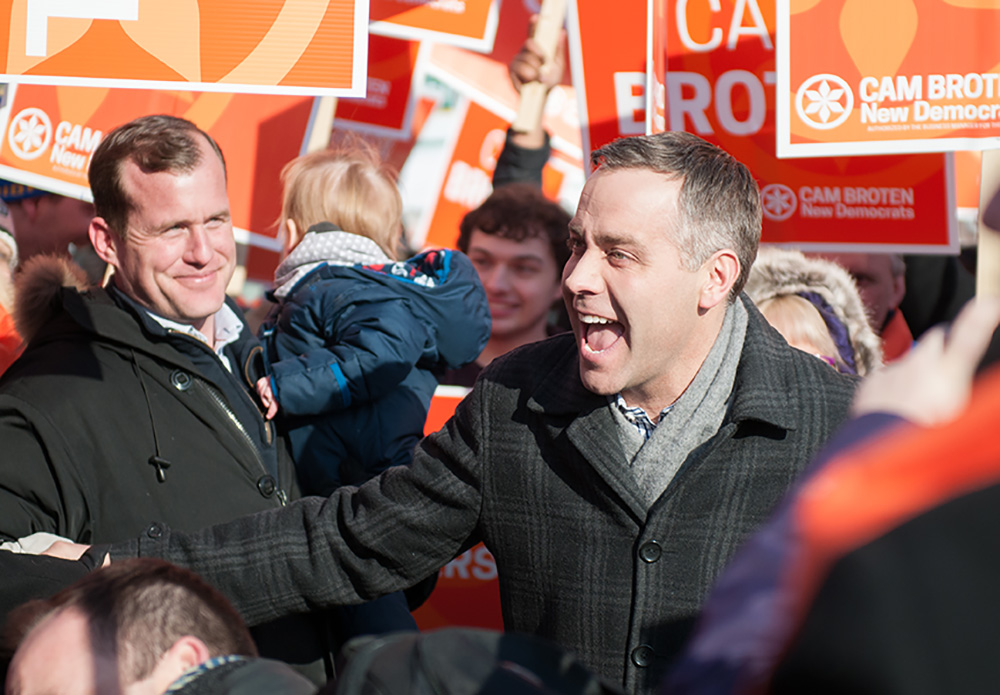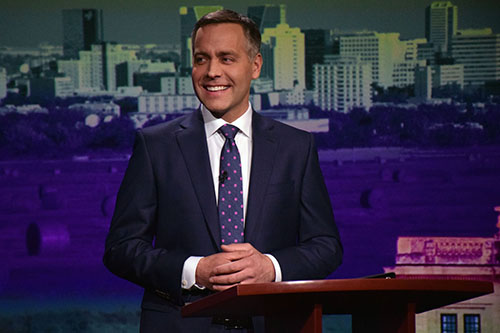Backgrounder by Laura Beamish
In Canada, the federal and provincial governments must work together to function at full capacity and allow citizens to enjoy life, liberty, and security of the person. But these days, Saskatchewan and Ottawa rarely see eye to eye, making it difficult to achieve anything positive.
Premier Brad Wall has had some very public disagreements with Prime Minister Justin Trudeau, most notably on carbon taxes and the Energy East pipeline.
On March 22, 2016, the federal government released its 2016 budget. Wall didn’t like what he saw. With the recent fall of the oil and gas industry in Western Canada, the premier was looking for more support from Ottawa.
But the current state of disgruntlement is nothing new.
Since the early 1900s, the government and the people of Saskatchewan have, generally, had a long-standing hostile relationship with Ottawa. By the end of the First World War, frustrations simmered over Ottawa’s control of land in the West, and lack of action on policies that were negatively impacting the new province.
For example, westerners complained that high tariffs on American goods boosted the price of agricultural implements. Many felt Ottawa’s trade policies intentionally kept western provinces dependent on the federal government, and that Saskatchewan had been dismissed as an important part of Canada.
In the 1980s, decades of resentment boiled over into the Reform Party’s ‘the west wants in’ campaign. The new party argued that the federal government’s decisions were based solely on the interests of Ontario and Quebec.
The resentment toward Ottawa means Saskatchewan voters have historically strayed away from supporting the same parties provincially as they would federally. Instead of supporting mainstream Liberals or Conservatives, people often voted for parties such as the Farmer-Labour Party and the Progressive Party of Saskatchewan, forerunners of the Co-operative Commonwealth Federation. Voters hoped these parties would better represent Saskatchewan voices.The pattern of not favouring dominant political parties was clear in 1945, when Saskatchewan sent 13 CCF members to the House of Commons.
Similarly, when ‘Trudeaumania’ swept the nation in 1968, Saskatchewan opted out. “In none of the elections between 1968 and 1984 did Saskatchewan send more than two Liberal MPs to Ottawa. In fact, in the 1968 election, two Saskatchewan MPs were elected, one in 1979 and then in 1974. From then, not a single Trudeau Liberal was elected during Trudeau’s mandate, meaning in 1979 and 1980, no Liberals were elected from Saskatchewan,” notes Raymond Blake, a Canadian history professor at the University of Regina. As a whole, the province felt alienated by Trudeau’s attitude and the thought that his priorities were invested in other areas of the country.
The pattern changed somewhat when the Saskatchewan Party came on the provincial scene in 1999. The party had close ties to the federal Conservatives, especially when Stephen Harper became prime minister in 2006. Still, there were disagreements over federal assistance to farmers and equalization payments during the Harper years. On the other hand, there have been some recent positive outcomes. The City of Regina, in particular, has benefited from federal funding to some major infrastructure projects, and is home to one of Service Canada’s largest training centres for federal employees.
It is difficult to say if Saskatchewan’s relationship with Ottawa will ever improve. However, voters made a few tiny steps toward Ottawa in the last federal election. Although the province only sent one Liberal to the House, the popular vote for Justin Trudeau’s Liberals was 25 per cent, compared to an 18 per cent for the Liberals at the end of Pierre Elliott Trudeau’s time in office. If Brad Wall is voted in, this could mean that the people of Saskatchewan may be willing to forgive, but the province isn’t quite ready to forget.


















